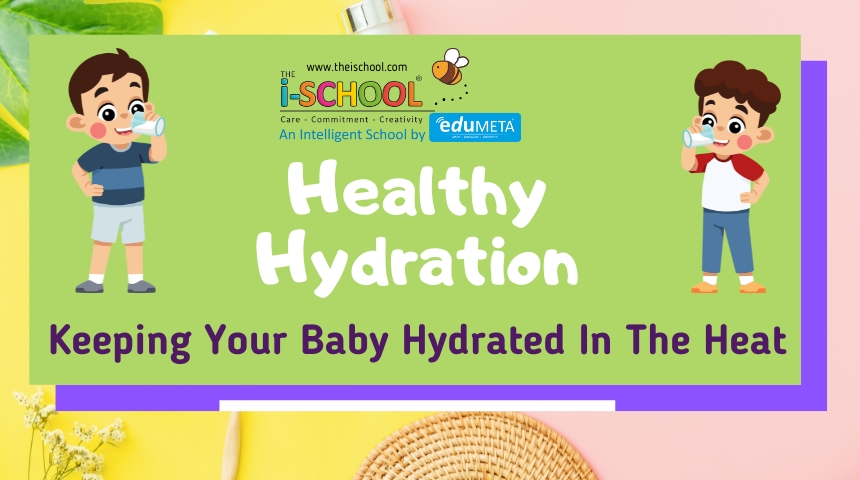Healthy Hydration: Keeping Your Baby Hydrated In The Heat

Ensuring your baby stays hydrated, especially during the hot summer months, is essential for their health and well-being. Babies are more susceptible to dehydration due to their smaller body size and higher metabolic rate. In this blog, we’ll explore practical tips for keeping your baby hydrated in the heat, ensuring they remain healthy and happy.
Recognize the Signs of Dehydration
Understanding the signs of dehydration is the first step in preventing it. Common signs in babies include:
- Fewer wet diapers (less than six per day for infants)
- Dark yellow urine
- Dry mouth and lips
- Fussiness or irritability
- Sunken soft spot on the head (fontanelle)
- Drowsiness or lethargy
If you notice any of these signs, it’s crucial to act quickly to rehydrate your baby.
Breastfeeding and Formula Feeding
For infants under six months, breast milk or formula is typically sufficient to keep them hydrated. During hot weather, you may need to offer feeds more frequently. Breastfed babies may need to nurse more often, as breast milk not only provides hydration but also adjusts to meet the baby’s needs. For formula-fed babies, ensure you prepare the formula as directed and offer it regularly.
Introduce Small Amounts of Water
Once your baby is six months old, you can start offering small amounts of water in addition to breast milk or formula. Water can help keep them hydrated without replacing the essential nutrients they get from milk. Offer water in a sippy cup, especially during mealtimes and throughout the day.
Offer Hydrating Foods
For babies who have started on solids, incorporate hydrating foods into their diet. Fruits and vegetables with high water content, such as watermelon, cucumber, and oranges, are excellent choices. These foods not only provide hydration but also essential vitamins and minerals.
Keep It Cool
During hot weather, keep your baby cool to reduce the risk of dehydration. Dress them in lightweight, breathable clothing and avoid direct sun exposure during peak hours. Use fans or air conditioning to maintain a comfortable indoor temperature.
Hydration on the Go
When you’re out and about, always carry a water bottle, sippy cup, or a small cooler with water and hydrating snacks. Offer fluids regularly, especially if your baby is active or exposed to the sun. Make sure to take frequent breaks in the shade or indoors to allow them to cool down and hydrate.
Monitor Fluid Intake
Keeping track of your baby’s fluid intake can help ensure they are getting enough to stay hydrated. Pay attention to the number of wet diapers, and if you notice a decrease, increase fluid offerings. Babies should ideally have at least six to eight wet diapers a day.
Be Mindful of Electrolytes
In extreme heat or if your baby is showing signs of dehydration, an electrolyte solution might be necessary. Consult with your pediatrician before offering electrolyte solutions to ensure it’s appropriate for your baby’s age and health condition.
Stay Alert to Environmental Factors
Environmental factors such as humidity, heat waves, and increased physical activity can increase the risk of dehydration. Adjust your baby’s hydration needs accordingly. For instance, on particularly hot or humid days, offer fluids more frequently and take extra precautions to keep them cool.
Consistent Check-Ins
Regularly check in on your baby’s hydration status throughout the day. Make it a habit to offer fluids after naps, during playtime, and whenever you notice they might be getting warm. Consistency is key to preventing dehydration.
Conclusion
Healthy hydration is vital for your baby’s health, especially in the heat. By recognizing the signs of dehydration, offering regular feeds of breast milk or formula, introducing water at the appropriate age, and incorporating hydrating foods, you can ensure your baby stays well-hydrated. Remember to keep your baby cool, monitor their fluid intake, and adjust for environmental factors to maintain their hydration and overall well-being during the hot months.
